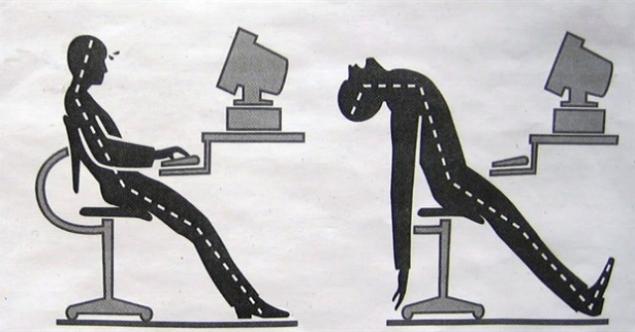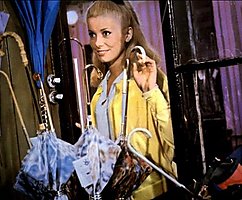Who came up with your lifestyle, and what is the real cause of the Forty-Hour Week
 Bashny.Net
Bashny.Net

Blogger David Kane shared interesting reflections on the effectiveness of the work schedule, the modern consumer society, and other relevant issues. Here is a translation of his article "Your lifestyle has created a» (Your Lifestyle Has Already Been Designed).
"Well, here I am back in the working world. I found a well-paid position in the engineering industry and the life, finally returning to normal after nine months of travel.
As before, I led a very different life, a sudden transition to a schedule from 9 to 17 navёl me think about things like that before I lost sight of.
From the moment I was offered the job, I became much carelessly handle their money. Do not mindlessly, but a little wasteful. For example, again to buy expensive coffees.
We are not talking about big and extravagant purchases. I'm talking about small, random, uncontrolled spending on things that really are not so important in my life.
Looking back, I think I've always done it when well-earned. But nine months I was traveling, mountaineering and led a very different life, without income.
I assume the additional costs are dictated by the sense of my own growth. Again, I highly paid professional, what kind of gives me the right to a certain level of extravagance. There is a curious feeling of influence, when you post a couple of twenty-dollar bills, bypassing critical thinking. Nice to use the power of the dollar, when you know that spending will recover soon enough.
The fact that I'm doing is not unusual. It seems everyone else is doing the same thing. I just returned to the normal consumer mentality, spending some time away from it.
One of the most surprising discoveries that I made during my travels is that traveling abroad, I spend much less per month (including those more expensive than Canada) than it was at home and was constantly working. I've got a lot more free time, I visited the most beautiful places in the world, constantly meeting new people, about anything not to worry, memorably spent time, and all this costs me in a smaller amount than my modest life under the schedule from 9 to 17 One of the least expensive cities in Canada.
It seems on the money I was getting a lot more when traveling. But why?
Building a culture of consumption of unnecessary goods or services
Here in the West, big business deliberately cultivated a lifestyle that focuses on unnecessary expenses. Companies of all industries have played an important role in educating society negligent handling money. They encourage the habit of spending money without a major accident or necessity.
In the documentary "The Corporation" marketing psychologist to discuss one of the methods she used to increase sales. Its staff examined how effectively children's whining increases the likelihood that parents will buy the coveted toy. They found that between 20% and 40% of the toys would be left in the shop, if the child is not plagued parents whims. Just would not take one of four visits to the theme park. Results of the study were used to sell products directly to children, inciting them to soliciting their parents buy.
One only this marketing campaign alone has led to the fact that buyers have left with millions of dollars because of the artificially induced demand.
"You can manipulate the customers and make them want to - and therefore buy - your goods." Lucy Hughes, one of the founders of «The Nag Factor».
This is just one small example of what has been going on for a very long time. Large companies do not knock together millions on that sincerely praising the dignity of their products, and that creates a culture of hundreds of millions of people who buy a lot more than they need, and money trying to dispel the dissatisfaction with life.
We buy things to cheer yourself to be as good as others, to bring their children's ideas about the future adult life to show the world their status and still many other psychological reasons, which are very little to do with the actual utility of the product. How much stuff is in your basement or garage that you have not used in the past year?
The real cause of the Forty-Hour Week
To support this kind of culture, large companies have established a 40-hour week as a norm of life. Under these conditions, workers are forced to organize life in the evenings and at weekends. This positions us to spend more on entertainment and amenities, as little free time.
I went back to work a few days ago, and already noticed how many useful things disappeared from my life: walking, exercise, reading, meditation, and additional writing.
All these activities have one thing in common: they are free or require a small cost, but they require time.
Suddenly I had a lot more money and less time. This means that I began to turn into a typical working North Americans was not observed a few months ago. While I was abroad, I did not visit so often thought of spending, I walked through the national park or spend hours reading a book on the beach. Now such things are not out of the question, because in such an occupation can lose precious holiday!
The last thing I want to come home, to do this exercise. It is the last thing I want to do after dinner or before going to sleep or just after waking up. And so every weekday.
Obviously, this problem has a simple solution: to work less to have more free time. I'm convinced that I can lead a full life with less income than I have now. Unfortunately, in my most other industries and is virtually impossible. You either work more than 40 hours, or not work at all. My clients and contractors adhere to the normal working order, so I can not ask them not to ask me anything after 13:00.
The eight-hour day, developed in the 19th century, during the industrial revolution in England. Before the factory workers exploited 14-16 hours a day.
With advanced technology and methods of workers in all industries we have gained the ability to produce a much larger volume of work in a short time. It would be logical to expect that this will lead to the shortening of the workday.
But the 8-hour working day brings too much benefit big business. Benefits are not in the fact that during this time people do a tremendous lot of cases - the average office worker over the 8:00 three o'clock doing real work. But an acute shortage of free time pushes people to the fact that they are more willing to pay for the convenience, pleasure and joy of any available. This keeps them from TV advertising. This deprives ambitions after hours.
We came to a culture that is designed to keep us in a state of fatigue, hunger, willingness to self-indulgent and a lot to pay for the convenience and entertainment. And most importantly - retained a vague dissatisfaction with their lives, so we constantly want what you do not have. We buy so much, because I always think that something else is missing.
Western countries, especially the US, are built with the expectation of your desires on the addictive and unnecessary costs. We spend money to lift your mood to reward yourself, to celebrate, to solve problems, to raise its status to dispel boredom.
Can you imagine what would happen if all of America stopped buying so many unnecessary things, do not yield substantial and long-term benefits to our lives?
The economy would have collapsed already, and would never have recovered.
All the widespread problems of America, including obesity, depression, pollution and corruption - this is the price paid for the creation and maintenance of a trillion dollar economy. To the economy was "healthy", America must remain unhealthy.
Healthy, happy people do not feel that they need a lot of what they have yet. This means that they do not buy so much junk they do not need so much fun, and they do not stare at the commercials.
Culture eight-hour working day - this is the most powerful tool of big business in order to maintain people in a state where the answer to all the problems of getting buy anything.
Perhaps you've heard of Parkinson's Law: "The work fills the time allotted to it." In twenty minutes you can make a surprising number. But when you have to perform actions only have twenty minutes. If you have all day, then most likely, it will take more time.
Most of us are so true to their money. The more we earn, the more we spend. This is not because we suddenly have to buy more. We spend more, simply because we can afford it. In fact, people quite difficult to avoid an increase in the standard of living (or, at least, contain the level of expenditure), when an increase in income.
I do not think you have to hide from the ugly system, live in the woods and pretend to be deaf as proposed by the symbol of non-conformism, Holden Koulfild. But we are helpful to understand what we want to see a large corporation. They have been working for decades to create millions of ideal consumers, and they succeeded. If you - not a real anomaly, your way of life laid out for a long time.
The ideal client is constantly dissatisfied, but full of hope, is not interested in serious personal development, is very attached to the TV, working full time, he earns a good idea, to indulge in his spare time and just floats down the river.
Nobody recalls?
Two weeks ago, I would say that it is certainly not about me. But if all my week were similar to the past seven days, the answer would have been self-deception ».
Author: David Kane
According to the materials: raptitude.com
Tags
See also
Find out the real cause of cancer and 93% of fatal diseases
We tend to associate happiness with consumption: why we bought, buy and will continue to buy
Pierre Bourdieu Public opinion does not exist
Cancer — a message from the above that your lifestyle is killing
10 Steps to eternal youth. Take from life all the best!
David Kane: Inner balance — a step towards their own well-being!
How to get rid of chronophage - those who devour your time?
The real reason for killing the relationship
Ctroitel figured out how to make life more fun to kids in hospital
Chaos as decrypted in order: what is apophenia
















